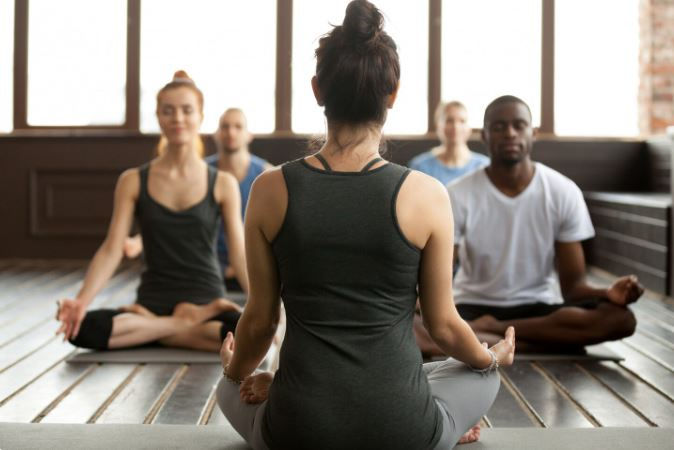Benefits of Yoga
- Louise Claridge
- Oct 7, 2025
- 3 min read

No matter your age or fitness level, anyone can start yoga. It can help improve both
the mind and body. It is a very simple practice that helps with movement, breathing,
and mindfulness. It is a very important tool for well-being. One of the main reasons
people start yoga is that it helps reduce stress, be more flexible, and relax the mind.
Even a short yoga session can help in so many ways.
Yoga is very good for physical health; it can help improve flexibility and make your
muscles much stronger. Practicing yoga regularly can help reduce aches and
stiffness. Doing yoga might be very beneficial for those who work at a desk all day, as
it helps relieve stress and balance.
Another big plus for yoga is that it helps with mental health and restores emotional
balance. Yoga is perfect for reducing negative thoughts and bringing more self-
awareness to your daily life.
There are many different styles and difficulties in yoga; those difficult yoga poses
might look overwhelming. But there are plenty of easy poses to get started and
improve your confidence.
Yoga is a great way to support the body, it helps calm the mind, and it can
significantly improve your quality of life.
Restorative Yoga
Practicing restorative yoga is very gentle on the body; it encourages focus and deep
relaxation. Instead of rushing through poses and doing difficult yoga poses. It helps
to hold them for a longer period; a yoga bolster or a pillow is perfect for holding
these long poses. Using these yoga props allows your body to rest, relax, and release
tension.

Basically, a Yoga Bolster is a cushion that helps with yoga; it offers support for your
back, legs, and knees. It allows your body to relax into poses without strain, which
allows you to stay in those poses for longer. A pillow can be used exactly in the same
way.
While practicing a child yoga pose, a bolster can be placed behind your chest and
head. Using the bolster takes away any pressure from your joints. Using a bolster
allows you to open your chest by keeping your lower back well supported.
The main purpose of restorative yoga is to slow down during yoga, it makes it more
comfortable and relaxing. It is the perfect way of reducing stress and improving
sleep.
How to use a yoga wheel and a foam roller
By using a yoga wheel or a foam roller, both tools are slightly similar, but they will
help your yoga recovery more effectively. They are designed to release tension and
to help improve flexibility, which can help in many different ways.
A yoga wheel is perfect for opening the chest, shoulders, and back. You can use it by
gently using the wheel to stretch your muscles. It is also useful for improving posture
and to help build core strength.
Using a yoga wheel is very useful for those who work in front of a computer or sit
around all day. It is perfect against slouching as it helps to open the chest. Some will
use these yoga wheels for balance.
Using a yoga foam roller looks very different from a yoga wheel, as it helps with self-
massage. You can use the roller on your calves, thighs, and back. It helps release
tightness, and it is great for recovery from yoga. It can also be used for warming up
before a yoga session.
Using both of these during your yoga session can help enhance your yoga practice.
Using a Yoga eye mask
A yoga eye mask is the perfect tool for relaxing; it enhances your meditation and
helps you to be calmer. A yoga mat is usually lightweight; some are heavier. It is
placed over the eyes to help block out light.
Using a yoga mask during practice helps reduce any distractions. It can be very
helpful during restorative yoga, meditation, and savasana. A heavier yoga mask is
perfect for relaxing; the pressure from the mask will cause the muscles around the
eye and forehead to relax. You can fill some yoga masks with lavender or other types
of herbs.
A yoga mask is not only used during yoga; it can be used before going to bed or
before having a nap. They are often used during meditation to help encourage
relaxation.
Written By: Elgan Larson
Website: https://www.yogaprops.co.uk
Email: info@yogaprops.co.uk








Comments